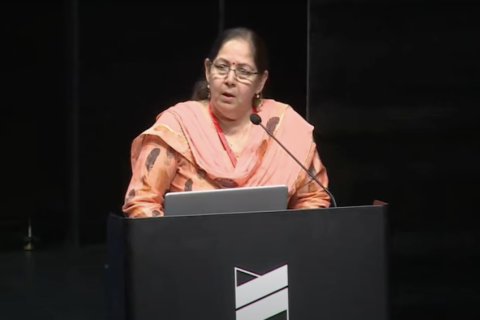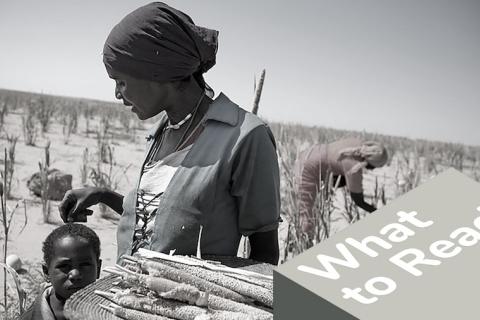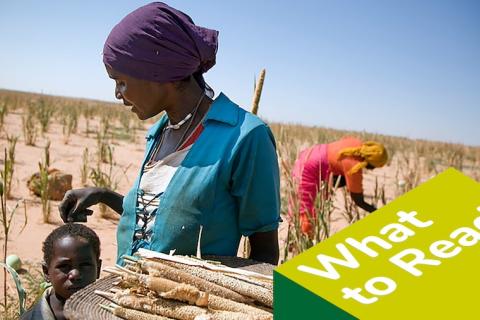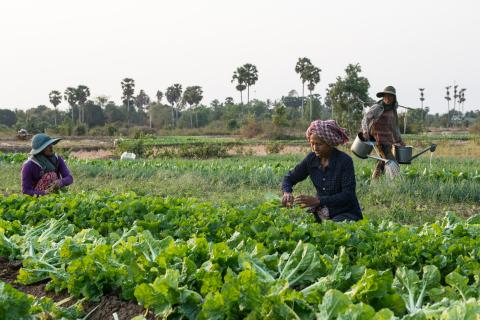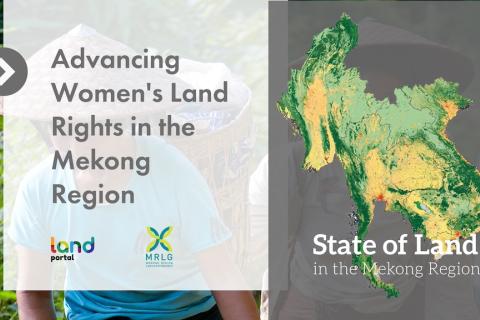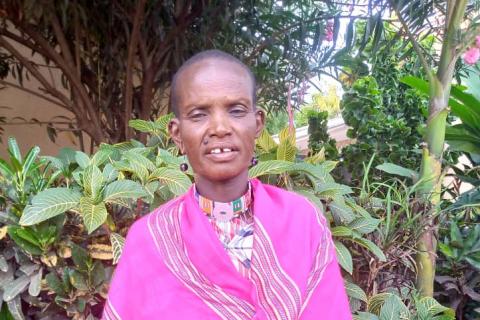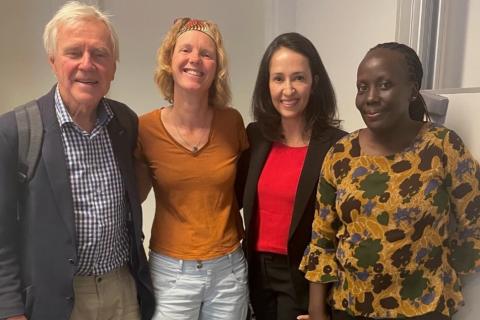Women and Land: Advancing Gender Equity in Land Tenure Across the Arab Region
Beyond land tenure, youth land rights fosters socioeconomic development
Africa is the youngest continent in the world, with a median age of around 20. This rising generation of youth presents an enormous opportunity for socio-economic development. But for Africa’s young people to unlock their full potential, they need full enjoyment of land rights – a cornerstone for economic opportunity and social empowerment.
Breaking Ground: Professor Anju Vali Tikoo's Call for Gender Justice in Land Governance
Professor Anju Vali Tikoo, a distinguished academic with a career spanning over three decades, delivered a passionate and incisive keynote at the 8th India Land and Development Conference (ILDC). Her address, a clarion call for gender inclusivity in land governance, explored the intersection of law, policy, and lived realities for women in India. With her deep-rooted knowledge of legal frameworks and her personal experiences, Prof. Tikoo brought to light the systemic barriers that continue to marginalize women in matters of land ownership and decision making.
Four articles on why women remain central to feed families and the world
In honor of International Women’s Day, this What to Read Digest offers a selection of some of the must-read publications for anyone wishing to understand the link between land, food security and women.
What’s Gender Got to Do with the Governance of Land?
A Recap of the Recent Land Portal-MRLG Webinar on Gender Equitable Land Governance in the Mekong Region
On Thursday 15 February, the Mekong Region Land Governance (MRLG) project and the Land Portal launched the first webinar in the State of Land in the Mekong series. The series, which will consist of three webinars across 2024 and 2025, aims to shine a spotlight on land issues in the Mekong region during a time of immense rural transformation.
Webinar Recap : Women’s Participation in Land Governance in the Mekong - Moving Beyond Quotas to Meaningful Inputs and Influence
This webinar took place on February 15th, 2024, under the title “Women’s Participation in Land Governance in the Mekong : Moving Beyond Quotas to Meaningful Inputs and Influence”. The webinar featured panelists from researchers to youth representatives. The webinar was jointly organized by the Land Portal Foundation and Mekong Region Land Governance (MRLG).
I am not afraid to speak up
Since engaging in WOLTS training, gender and land champion Sindooi is actively supporting women and widows' inheritance rights in her community.
Land governance to strengthen climate resilience for women
This session brought together insights on land governance and climate resilience, with a specific gender focus. Women suffer from lack of access to, decision making over, and use of land. At the same time, climate change disproportionally affects women. Research indicates that ‘gender just land governance’ forms the key to use land in a sustainable, climate-proof way. There are many entry points to make land governance just and inclusive of women.
Embracing Transformative leadership for women’s land rights for sustainable change
In the past decade, the land rights movement, particularly the women's land rights movement, has significantly made progress in strengthening the recognition of land rights in national, regional and international instruments. Despite the progress, translating these recommendations into legislative provisions and practices in countries has been slow or minimal




